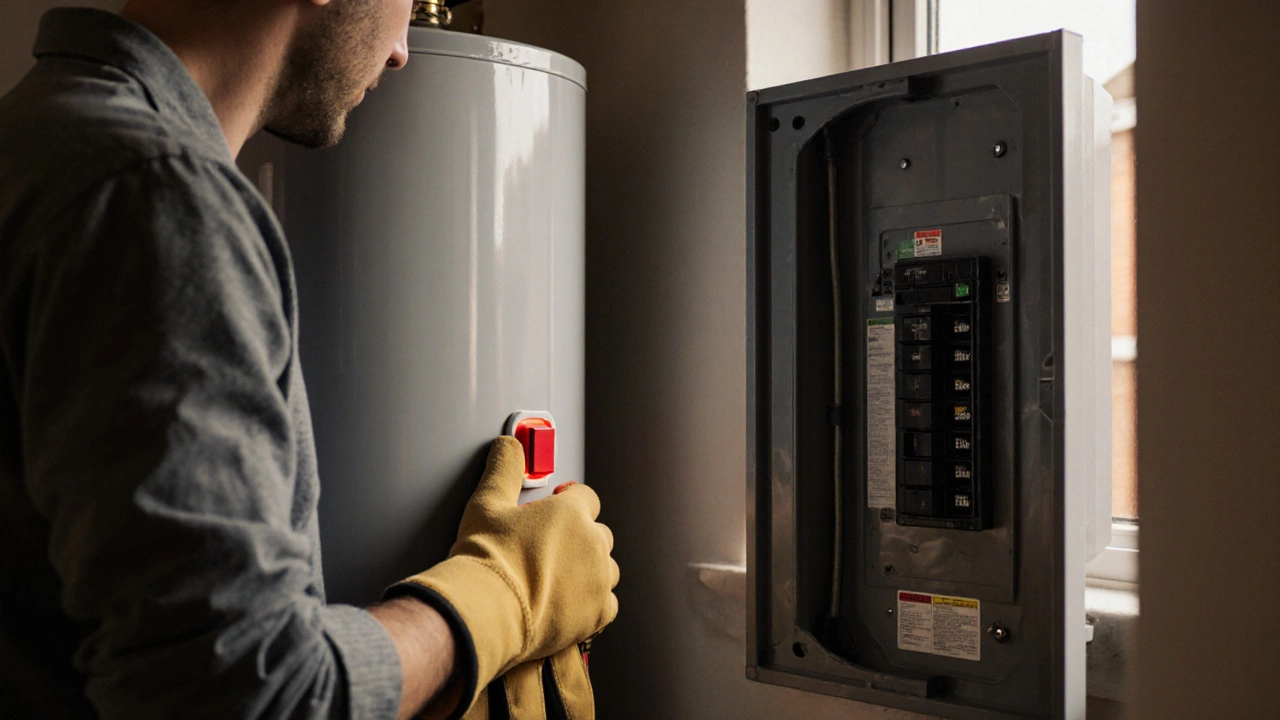When dealing with high limit switch, a safety device that stops a heating element or boiler when temperature gets too high, you’re looking at one of the most important guards in any hot‑air or hot‑water system. Also called a thermal cut‑out, it works hand‑in‑hand with boiler, a sealed unit that heats water for home heating and hot taps, heat pump, a device that moves heat from outside air or ground into the house and even oven, the kitchen appliance that uses electric or gas burners to bake food. All of these appliances also rely on a thermostat, a sensor that tells the system when to turn on or off to stay safe and efficient. In short, the high limit switch protects equipment by cutting power when temperature exceeds safe limits, which prevents damage and fire hazards.
Most homeowners first notice a problem when the boiler won’t fire, the heat pump stops blowing warm air, or the oven refuses to heat. Those symptoms often trace back to a tripped high limit switch. If the switch has opened, the system’s control board will register a fault code – something you’ll see in many of our boiler troubleshooting guides. You might also hear a clicking sound as the switch resets itself, only to open again a few minutes later. In a heat pump, a faulty switch can cause the compressor to overheat, leading to short cycling and higher energy bills. For ovens, a bad switch usually results in an “oven not heating” warning, which you’ll find discussed in our electric oven repair article. The common thread is that the switch is doing its job – stopping the heat – but it’s doing it at the wrong time.
Another clue is a lingering smell of burnt wiring or a faint metallic odor near the appliance. That indicates the switch may have welded shut, keeping the heating element live even when the temperature is already too high. Safety inspectors often recommend checking the high limit switch during routine boiler service, as we explain in the boiler service cost guide. When you replace or test the switch, you’ll typically need a multimeter to verify continuity. If the reading stays open at room temperature, the switch is likely bad and should be swapped out. The replacement part is inexpensive, but the labor cost can add up, especially if you need an experienced technician to access it inside a sealed boiler housing.
Understanding how the high limit switch interacts with other components helps you decide whether a DIY fix is feasible. For simple ovens, you can turn off the power, remove the rear panel, and test the switch with a multimeter – a task covered in our oven element replacement guide. Boilers and heat pumps, however, involve pressurized systems and sometimes gas lines, so it’s safer to call a qualified engineer. Knowing the difference saves you time, money, and the risk of voiding warranties. Below you’ll find articles ranging from step‑by‑step boiler diagnosis to heat pump compressor cost, each touching on how a high limit switch fits into the bigger picture of appliance safety and performance.

Learn when it's safe to press the water heater reset button, step‑by‑step instructions, common risks, and when to call a professional.

Wondering if you should repair your washing machine or just buy a new one? This article breaks down when it's smart to fix your appliance and when it's better to let it go. Get tips on common washing machine problems, repair costs, and simple troubleshooting steps. Plus, learn how to avoid getting ripped off by price gouging repair techs. If laundry day is starting to look like a coin toss, read this before calling the junk hauler.

If your electric oven suddenly stops working, don't panic. This article explores common issues with electric ovens and provides practical tips for troubleshooting and repair. From understanding how different components work to knowing when it's time to call a professional, you'll find the go-to advice you need to get your oven back in working order. Avoid the hassle of guesswork and get straightforward guidance on keeping your kitchen running smoothly. Practical insights on oven maintenance await you.

Most extractor fans can be repaired with simple fixes like cleaning, capacitor replacement, or tightening parts. Learn when DIY works and when to call a pro to avoid costly damage from damp and mold.

Microwaves seem invincible until they suddenly stop working—usually right when you're hungry. This article tackles what actually breaks down most often in a microwave, from simple blown fuses to tricky magnetrons. You'll learn the telltale signs for each failure, why these things wear out, and how to figure out if it’s something you can fix yourself. Plus, there are practical tips on keeping your microwave running smoother for longer. Perfect for anyone tired of cold leftovers and expensive repair bills.

Understanding whether an electrician can repair your extractor fan might save you time and hassle. Dive into the nitty-gritty of what electricians can do for your fan problems, and get tips on how to maintain these helpful appliances. This guide covers the skills electricians bring to the table and when a specialist might be needed. Stay informed and prepared for any fan-related issues that might come your way.